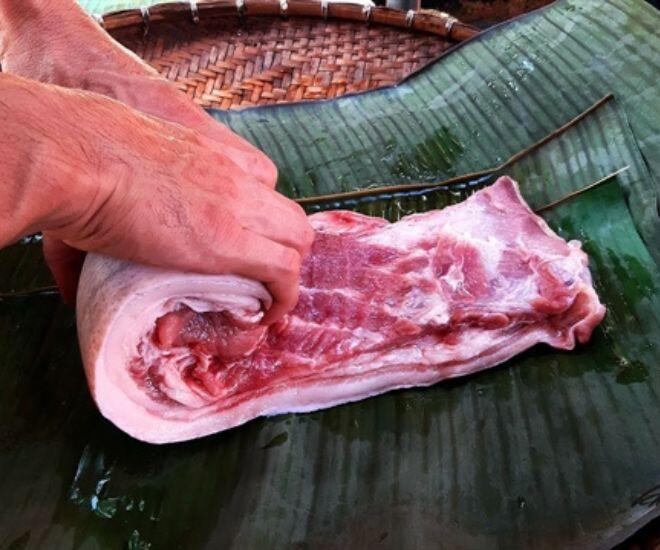
Gio Nay, also known as Gio Lay, Gio Cuon, or Gio Mo, is a culinary treasure deeply rooted in the traditions of Thai Binh province, Vietnam. Unlike common varieties such as Gio Xao, Gio Bo, Cha Mo, or Cha Que, which are made from minced meat, Gio Nay stands out with its unique preparation method—using whole pork belly wrapped in layers. This distinct approach not only imparts a signature flavor but also elevates it to a symbol of local pride.
The star ingredient of Gio Nay is pork belly, a cut that combines lean meat, fat, and skin in perfect harmony. This trio creates a texture that is both crispy and tender, rich yet not overwhelming. After cleaning, the meat is marinated with pepper, salt, MSG, and finely minced garlic and shallots. Some families add wood ear mushrooms for an extra crunch. The marination process, lasting 30 to 45 minutes, ensures the flavors penetrate every fiber of the meat.
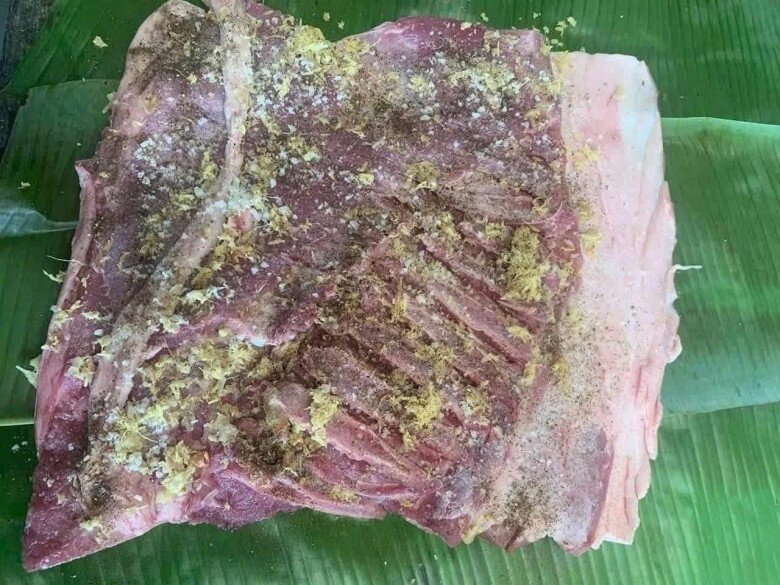
Once marinated, the meat is wrapped in banana leaves, rolled tightly, and secured with twine. This step demands precision; a loose roll results in a disjointed final product, compromising both appearance and taste. Skilled wrappers ensure the lean meat is evenly distributed, with the skin enveloping the entire roll, creating a cohesive block.
The wrapped Gio Nay is then boiled in a large pot for 4 to 5 hours. The heat must be carefully regulated—too high, and the meat becomes mushy; too low, and it remains undercooked. A steady medium flame ensures the meat cooks thoroughly, releasing an enticing aroma while retaining its crispness and sweetness. After boiling, the roll is cooled and pressed, similar to pressing sticky rice cakes, to compact the ingredients into a firm, cohesive whole. The final product boasts a natural green hue from the banana leaves and a fragrance that tantalizes the senses.
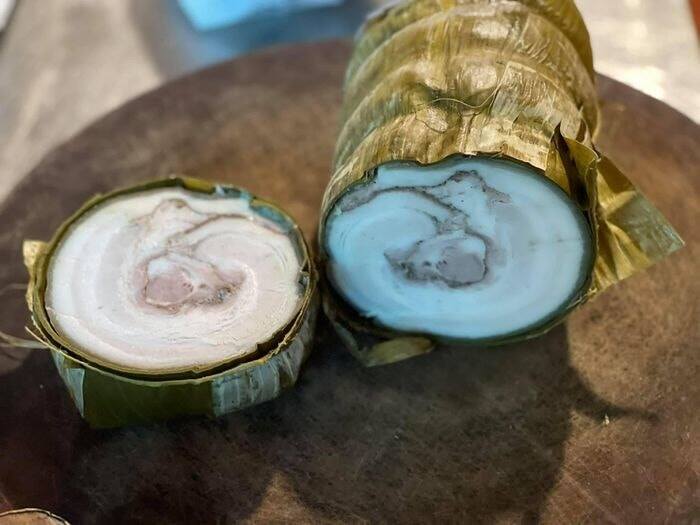
Gio Nay can be shaped into either round or square molds. When served, it is sliced into rectangular pieces and paired with pickled onions or radishes to balance its richness. This combination transforms what could be a heavy dish into a refreshing, palate-pleasing experience, enjoyed by all ages.
In Thai Binh, Gio Nay is a staple at festivals, anniversaries, and weddings, embodying the host’s hospitality. Many families also gift it to loved ones during the Lunar New Year. Despite its intimidating appearance, one bite reveals a melt-in-your-mouth texture, a refreshing lightness, and a harmonious blend of flavors. The richness of pork belly, the mild heat of pepper, and the subtle aroma of banana leaves create an unforgettable culinary experience.
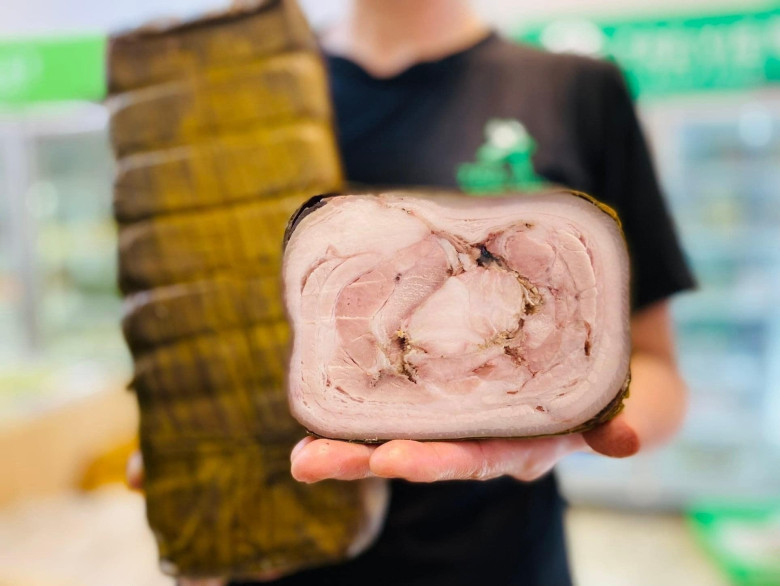
Today, Gio Nay’s popularity extends beyond Thai Binh, with vacuum-sealed packages preserving its quality for up to 10 days in refrigeration. Customers often pre-order 1 to 2 months in advance, purchasing up to 15–20 kg for personal use and gifting. Priced between 300,000 and 400,000 VND per kilogram, it remains in high demand, especially during the Lunar New Year when prices surge due to increased demand and rising material costs.
Gio Nay is more than a dish; it is a testament to Thai Binh’s culinary ingenuity. Within Vietnam’s diverse gastronomic landscape, it showcases the creativity and sophistication of the rice-growing region’s cuisine. Transforming simple pork belly into a unique delicacy, Gio Nay stands apart from all other sausages.
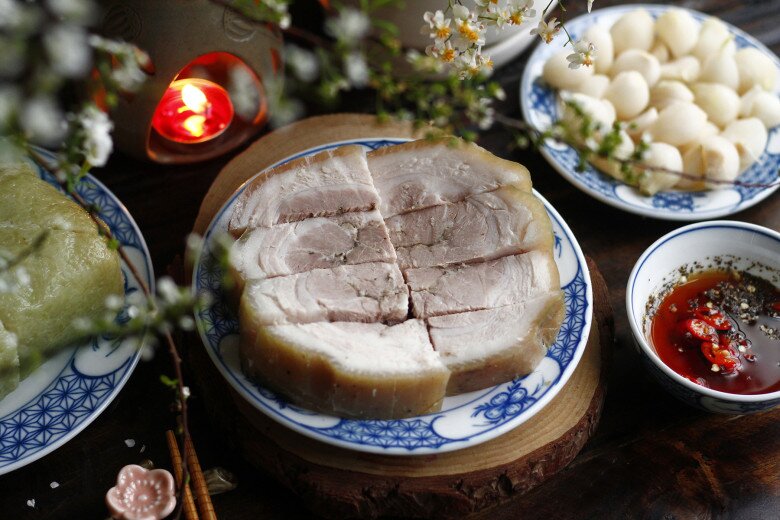
As culinary tourism grows, Gio Nay has become a must-try for visitors to Thai Binh. Its blend of tradition and modernity has propelled it beyond local borders, making it a sought-after delicacy for anyone exploring the region. Whether as a refreshing starter or a cultural emblem, Gio Nay leaves an indelible mark on all who taste it, embodying the richness and diversity of Vietnamese cuisine.
































